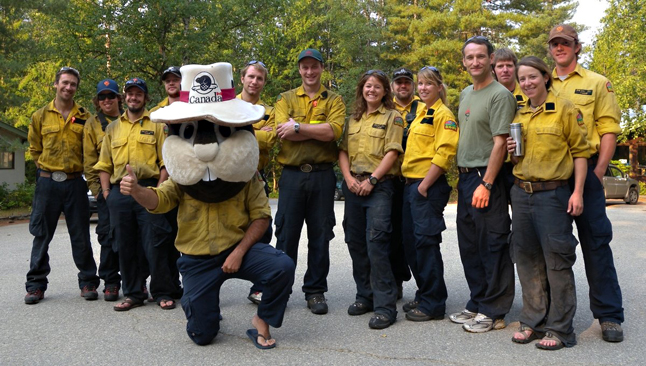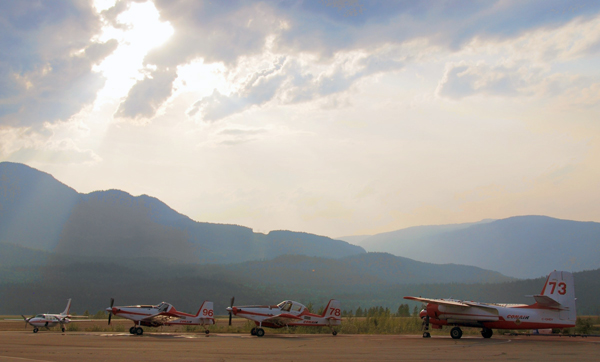

Fires across BC are straining provincial resources, and support is coming in from fire crews in other provinces, and even as far away as Australia. Another subtle, but critical partnership is a little closer to home—from crews working in the national parks at our doorstep.
Parks Canada typically focuses on fire management on federal land within national parks, while the Wildfire Management Branch of the British Columbia Forest Service manages fires on provincial land. Mount Revelstoke and Glacier National Park Fire Management Specialist Simon Hunt states that, “there is a mutual aid agreement, between these two agencies, that allows resources to be shared in times of need.”
This partnership takes many forms. Mount Revelstoke and Glacier national parks rely on provincial information and technology on an ongoing basis—in the form of lightening detection, fire reporting and fire-weather information. In more critical situations, the provincial teams can share their specialized resources, such as air-tankers and Rapattack rappel teams.
Just this past week, BCFS assisted Parks Canada with air tanker support with a fire in the Southeast corner of Glacier National Park. The fire had the potential to consume an entire mountain-side. With their support, the fire was contained at 12 hectares. In return, Parks Canada offers its own specialists and resources, when the provincial teams are feeling the strain. Currently, Parks Canada has a fire command management team assisting at the fire near Lillooet this summer. As well, with 25 years experience in restoring fire to the landscape through prescribed burning within national parks, Parks Canada fire crews are extremely skilled in ignition techniques and predicting fire behaviour. Hunt says, “Although the notion of fighting fire with fire is relatively new, it is becoming more common to ignite strategic fires to remove fuels and create barriers that crown fires and embers cannot cross.”
Last week, in Mount Revelstoke and Glacier national parks, lightening strikes started 6 small fires—which were quickly extinguished by the local Parks Canada Initial Attack crew and one medium fire, which continues to be monitored. This same crew also extinguished four fires on provincial lands near the boundary of the parks. Initial attack crews typically fly by helicopter into a fire when it is less than one hectare and use chainsaws, hand tools, water reservoirs, and pumps to quickly extinguish fires before they grow. As part of the mutual aid agreement, Parks Canada Initial Attack crews can assist with fires up to 16km from the boundary of the national parks. Under extraordinary circumstances, such as those that exist this summer, the agreement extends up to 50km from the park boundary.
In the past week, rain and cold temperatures in the Rocky Mountains have reduced the fire hazard in national parks such as Banff, Waterton and Kootenay. As a result, their Initial Attack crews have come over to the Columbia Mountains to lend a hand, not only to Mount Revelstoke and Glacier national parks, but also to the BC Forest Service.
According to Gregg Walker, Fire and Vegetation Specialist for Mount Revelstoke and Glacier national parks, “this collaboration is possible because of the relationships built through the Revelstoke Community Wildfire Protection Committee.” Over the past two years, a number of local stakeholders have been meeting to discuss strategies to protect Revelstoke from interface fires.
Though we have received some relief from rain showers this week, there is still over a month remaining in the fire season. These relationships will continue to be crucial over the weeks to come, in this very dry summer of 2009.
Alice Weber is an information officer with Parks Canada




